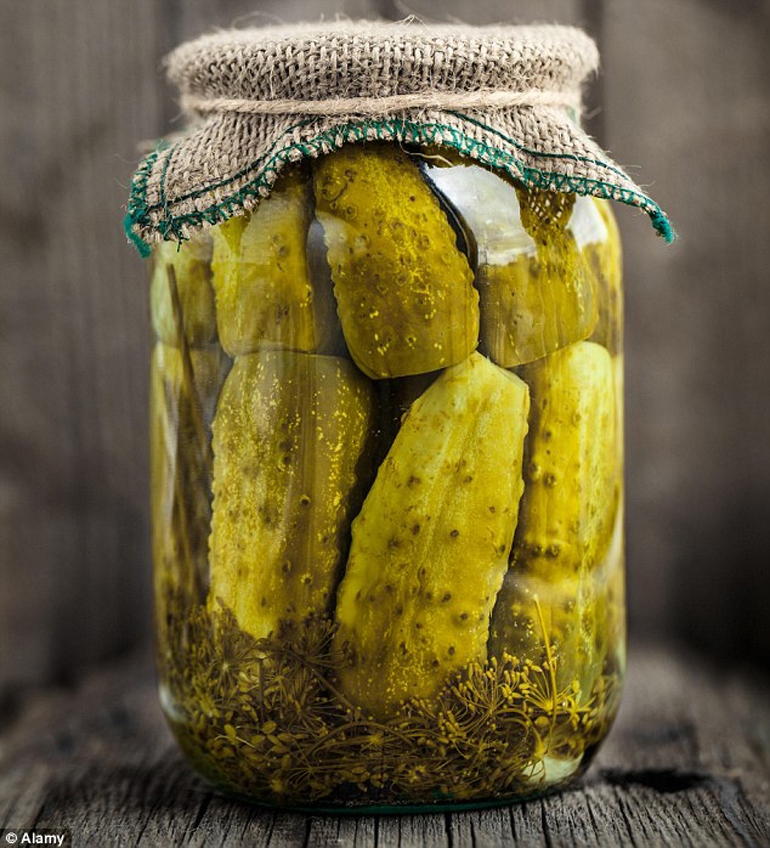Sunday Feb 15, 2026
Sunday Feb 15, 2026
Saturday, 14 November 2015 00:00 - - {{hitsCtrl.values.hits}}
 While we may just be rediscovering the benefits of pickling, it has a long history
While we may just be rediscovering the benefits of pickling, it has a long history
The Daily Mail: For many of us, memories of crunching our way through a jar of Grandma’s indigestible home-pickled red cabbage is enough to induce a cold sweat. But pickling is suddenly super-hot. And the craze is captivating chefs and cookery writers from Jamie Oliver to Gizzi Erskine.
So what is driving this food obsession? For starters, pickled food is very good for us. It’s not just that we are getting an extra helping of fruit and veg, but the process of pickling also adds extra zing to produce. As soon as we seal fruit or veg in a jar with vinegar, they start anaerobically fermenting. This oxygen-free fermentation is great for our digestive systems.
“The microbes responsible for fermentation often create enzymes and vitamins, break down food components that are difficult to digest and make minerals more available for our bodies to assimilate,” says Alex Lewin, author of Real Food Fermentation.
While a small helping of pickled cabbage or carrot may contain a modest amount of vitamins and minerals, eating it with a meal instantly boosts the probiotic content of the rest of the meal.
And the benefits of fermentation explain why some people who are lactose-intolerant are able to eat yoghurt (fermented milk) with no ill-effect. These healthy bacteria help keep fermented food safe and less likely to spoil, and can also help increase the good bacteria in our guts.
While we may just be rediscovering the benefits of pickling, it has a long history. Historians believe the Mesopotamians were the first to discover the process in around 2400 BC as a way of preserving vegetables. It rapidly caught on.
Cleopatra is said to have attributed her beauty to a diet of pickles. And philosopher Aristotle was convinced pickled cucumbers kept his mighty brain ticking. Meanwhile, Shakespeare’s plays are peppered with references to pickles – suggesting he may have been a fan.
Whereas our grandparents stuck to pickling old staples such as cabbage and onion, though, this new wave of pickling is different.
It’s all about experimentation. Chef Gerard Baker, author of ‘How To Pickle,’ says: “Pickling is taking off because it’s simple and incredibly versatile. In its simplest form, single varieties of fruit or veg are preserved in flavoured vinegar and matured for several weeks before use. But I’d argue pickling is the most creative way of preserving food. You can use a huge variety of ingredients and spices in delicious combinations. It’s fun to combine the best fruits and veg with spices in ever more imaginative ways. One of my favourites is a pickled peach salsa: combining peaches, garlic and habanero chillies.”
Of course, pickling is also a great way to save money. Instead of chucking out a sad-looking cabbage, you can turn it into sauerkraut. Gluts of fruit and veg that would otherwise go to waste can all end up in jars, saved for a rainy day.